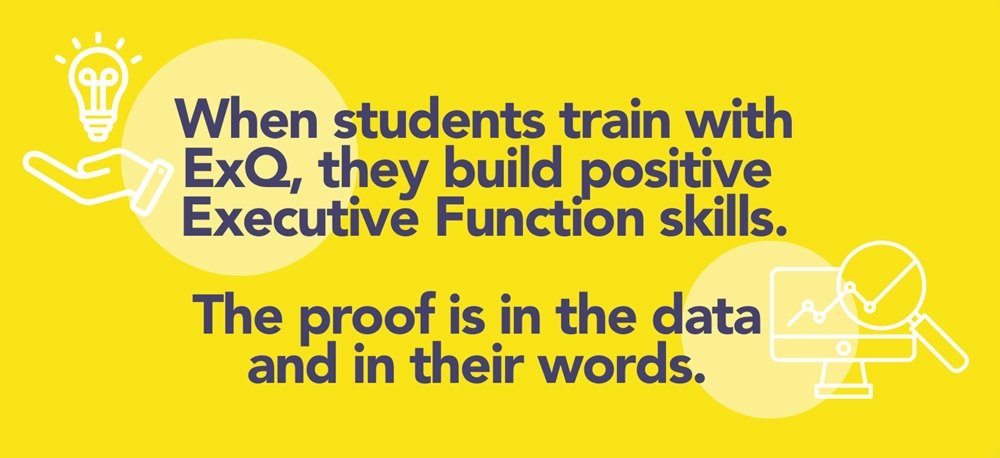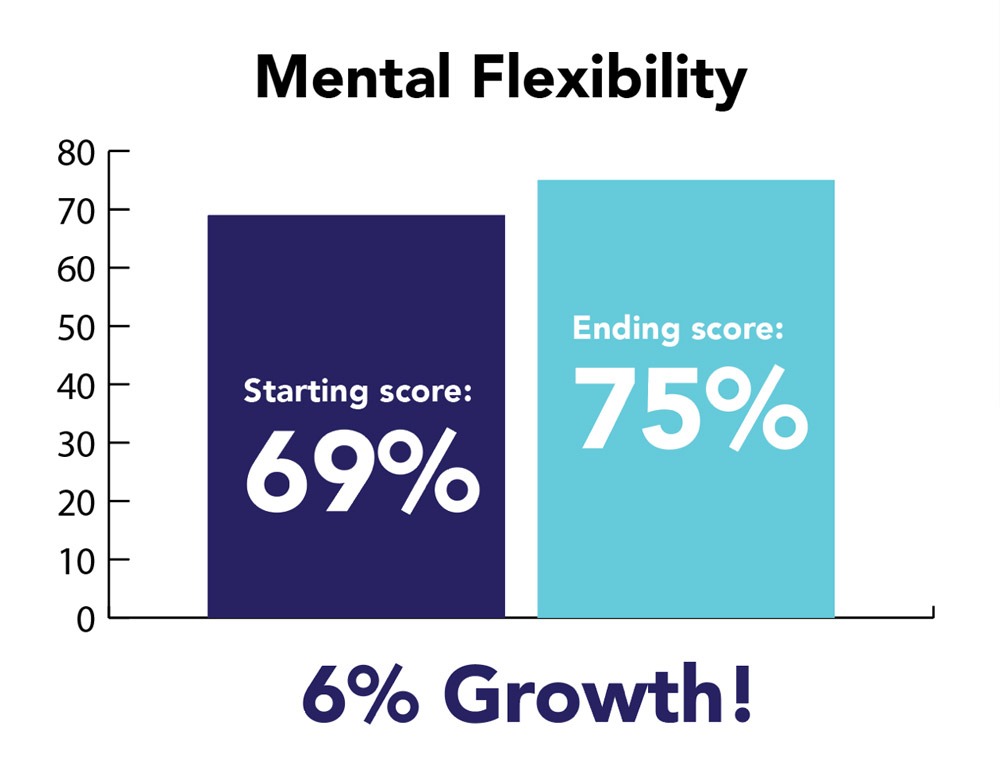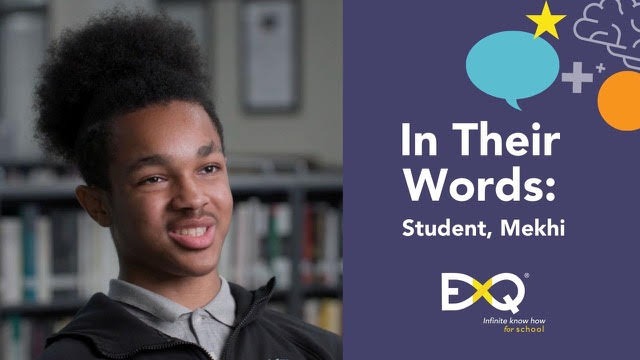Cultivate Mental Flexibility for Resilience and Adaptive Thinking in Students
What is Mental Flexibility?
What is Mental Flexibility? With ExQ, students learn that Mental Flexibility is their ability to deal with the unexpected by considering alternative options or what other people see, adjusting behaviors, readjusting emotional coping and then go with the flow to ultimately approach life’s challenges flexibly. Mental Flexibility allows students to consider alternative options as well as perspectives, adjust behaviors, and readjust emotional coping to ultimately approach life’s challenges flexibly. ExQ hopes with its training, students will learn to expand their awareness, see information from more than one’s own perspective, and consider more than one alternative, possibility, or solution. ExQ believes a trained mind and brain can give up a rigid viewpoint, accept unfavorable feedback, collaborate with others and willingly compromise to reach a common solution.


When students’ engage with ExQ’s Executive Function classes, they increase their abilities to identify and achieve their own goals, and become independent thinkers able to shift strategies during times of change or unexpected distractions. ExQ helps teachers and their students understand their learning strengths and challenges, and then provides an individualized curriculum that explicitly and directly teaches students how to develop Executive Function skills, such as mental flexibility, helping them monitor their own growth and progress over time.
Through its patented technology, ExQ’s data quantifies and validates students’ Executive Function strengths and challenges. For example, in the chart above, in one metro-Atlanta suburban school system, 50% of the students reflected Mental Fleibilility as their strength area. ExQ’s training not only worked on promoting students’ challenge area, but it offered training to further accentuate their strengths. At the end of year-long training, we saw 6% growth in Mental Flexibility!
Without a strategic plan to prioritize teaching of Executive Function skills as a core curriculum in our schools, students will not become self-aware about their mental flexibility nor will they cultivate a consistent self-reflection practice as a pathway to self-improvement. That’s why we believe ExQ is such a game changer in helping our students gain personal insights to succeed in school and beyond.

What do learners say about building mental flexibility with ExQ?
ExQ interviewed a High School Student in Baldwin County, GA, to hear his experience building Executive Function skills with ExQ. Mekhi found ExQ transformative: helping him improve focus, organization, and strategic thinking. Through the games, he has learned to manage distractions, plan for the future, and stay calm under pressure. He even applied these skills in a recent basketball game; after making a mistake, he turned his disappointment into a positive mindset, and his team ended up winning the game! Mekhi recommends ExQ for its fun platform and the significant benefits it offers, helping students become more productive and self-reliant.

Mental Flexibility can help children develop literacy skills in several ways:
Process of Reading:
- When children start learning to read, flexible thinking helps them understand that the same letter combination can make different sounds, like the “ough” in “enough” and “dough.”
- It also helps them understand how words can be used in multiple ways, like in “Don’t slip on the banana peel” and “Sign the permission slip.”
- Mental flexibility can also help with reading fluency by allowing children to switch between different aspects of a task, like graphophonological information and meaning.
- As children read books to learn information, flexible thinking helps them understand what details are just descriptive, redundant and what’s salient and relevant.
Process of Writing:
Mental flexibility can help with writing proficiency by allowing children to think of alternative ways to say something or change the organization of an essay. It can also help with fiction writing by allowing children to take on multiple perspectives, or with comparative essays by allowing them to imagine both sides.

Mental flexibility, also known as psychological flexibility, is a vital component of mental health. It’s the ability to be open and willing to respond to both internal and external factors in the classrooom and in life, and to independently cope with, accept, and adjust to difficult situations. This flexibility can help students develop healthier coping responses, and can act as a buffer between stress and negative psychological outcomes.

Mental flexibility is valuable in college success and every professional field because all lines of work involve solving a variety of problems in an ever-changing environment. ExQ teaches students how to solve a wide variety of problems in a wide variety of situations. Through ExQ’s innovative, patented learning curriculum, students develop skills that help them build the willingness and the positive attitude needed to adapt and solve problems independently, when things go wrong or shift unexpectedly.


